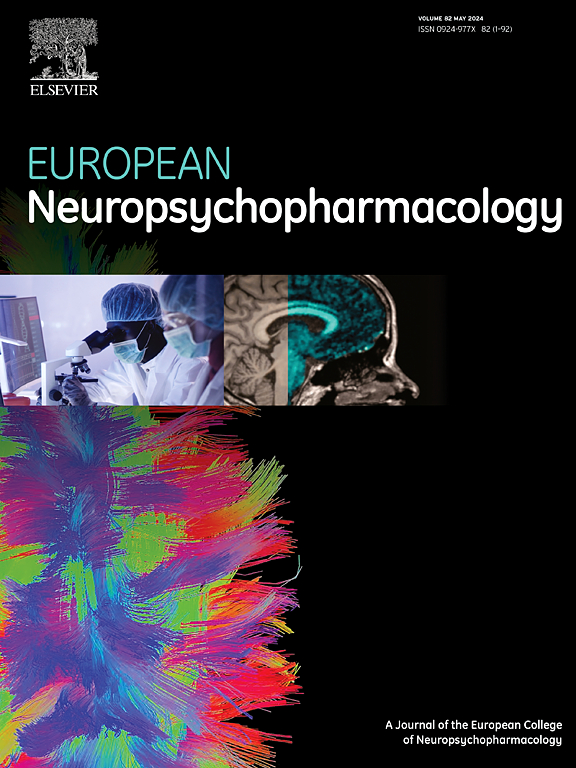EXPLORING MENTAL HEALTH STIGMA IN THE CONTEXT OF PSYCHIATRIC GENETICS: INSIGHTS FROM THE ISPG STIGMA REDUCTION SIG SURVEY
IF 6.1
2区 医学
Q1 CLINICAL NEUROLOGY
引用次数: 0
Abstract
Mental health stigma takes many forms and remains a significant barrier to seeking help and achieving equitable conduct in the work environment. This may be particularly relevant within psychiatric genetics, where researchers, clinicians, and individuals with lived experience converge. Characterizing the nature, prevalence and impact of mental health stigma within the psychiatric genetics community will be an important step toward developing strategies to mitigate its effects and promote inclusivity. The ISPG Stigma Reduction Special Interest Group (SIG) aims to explore ISPG members' views and experiences regarding mental health stigma, with the goal of understanding areas in which the SIG might affect change.
The Stigma Reduction SIG developed a survey to capture ISPG members' experiences and perceptions of stigma related to mental health conditions, as well as their advice on how to address it. To assess stigma in the personal environment, we used a question from the Attribution Questionnaire (ref). For the remaining questions, we developed novel items, as there were no suitable validated questionnaires available to address the specific topics relevant to the psychiatric genetics community. The survey was constructed using Qualtrics software, with participants' anonymity ensured. We received ethical approval from the QIMR Berghofer Medical Research Institute. The survey was distributed electronically to ISPG members, including researchers, clinicians, and individuals with lived experience with mental health conditions.
During this talk, the (preliminary) results of the survey data will be presented.
The ISPG Stigma Reduction SIG plans to use the survey insights to develop targeted action points aimed at fostering a more inclusive environment. By sharing these findings at the World Congress of Psychiatric Genetics 2024, we hope to initiate a broader conversation on stigma reduction and inspire collaborative efforts to eliminate prejudice and discrimination against people with mental health conditions, including those working in the psychiatric genetics field.
从精神病遗传学的角度探讨心理健康污名化问题:从国际精神病学协会减少耻辱感 SIG 调查中获得的启示
心理健康污名有多种形式,仍然是寻求帮助和在工作环境中实现平等行为的重大障碍。在研究人员、临床医生和有生活经验的个人汇聚一堂的精神病遗传学中,这一点可能尤为重要。了解精神疾病遗传学界心理健康污名化的性质、普遍程度和影响,将是制定战略以减轻其影响并促进包容性的重要一步。ISPG 减少污名化特别兴趣小组(SIG)旨在探索 ISPG 成员对心理健康污名化的看法和经验,目的是了解 SIG 可能会影响变革的领域。减少污名化特别兴趣小组制定了一项调查,以收集 ISPG 成员对心理健康状况相关污名化的经验和看法,以及他们对如何解决这一问题的建议。为了评估个人环境中的成见,我们使用了归因问卷中的一个问题(参考)。至于其他问题,我们则开发了新的项目,因为目前还没有合适的有效问卷来解决与精神疾病遗传学群体相关的具体问题。调查使用 Qualtrics 软件制作,确保参与者的匿名性。我们获得了 QIMR Berghofer 医学研究所的伦理批准。该调查以电子方式分发给 ISPG 成员,包括研究人员、临床医生和有心理健康问题生活经验的个人。在本次演讲中,我们将介绍调查数据的(初步)结果。ISPG 减少污名化小组计划利用调查结论制定有针对性的行动要点,以营造更具包容性的环境。我们希望通过在2024年世界精神病遗传学大会上分享这些调查结果,发起一场更广泛的关于减少污名化的对话,并激励大家共同努力,消除对精神疾病患者的偏见和歧视,包括对精神病遗传学领域工作者的偏见和歧视。
本文章由计算机程序翻译,如有差异,请以英文原文为准。
求助全文
约1分钟内获得全文
求助全文
来源期刊

European Neuropsychopharmacology
医学-精神病学
CiteScore
10.30
自引率
5.40%
发文量
730
审稿时长
41 days
期刊介绍:
European Neuropsychopharmacology is the official publication of the European College of Neuropsychopharmacology (ECNP). In accordance with the mission of the College, the journal focuses on clinical and basic science contributions that advance our understanding of brain function and human behaviour and enable translation into improved treatments and enhanced public health impact in psychiatry. Recent years have been characterized by exciting advances in basic knowledge and available experimental techniques in neuroscience and genomics. However, clinical translation of these findings has not been as rapid. The journal aims to narrow this gap by promoting findings that are expected to have a major impact on both our understanding of the biological bases of mental disorders and the development and improvement of treatments, ideally paving the way for prevention and recovery.
 求助内容:
求助内容: 应助结果提醒方式:
应助结果提醒方式:


